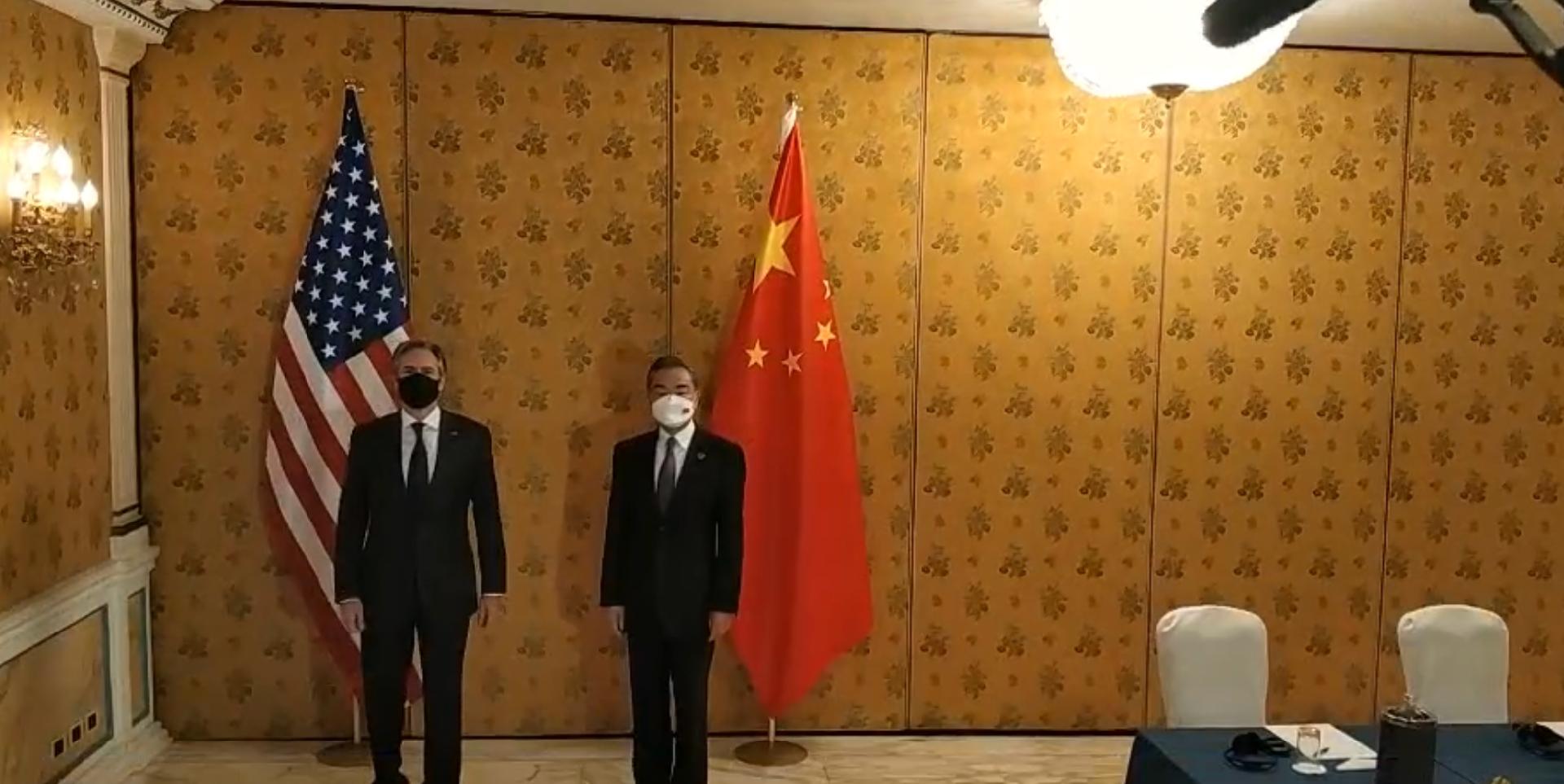On October 31, during the 16th G20 Summit, State Councilor and Foreign Minister Wang Yi and US Secretary of State Blinken met in Rome, which received widespread attention from the outside world. According to reports, this is wang yi's second face-to-face meeting with Blinken, and the first time the two have met since the Sino-US Alaska talks in March this year. There are three details of wang yi's meeting with Blinken that deserve attention and can fully reflect the current Sino-US relations.

The first detail worth paying attention to is the location of the meeting. According to media reports, the meeting was held at the Chinese delegation's station, and when Blinken and his party arrived at the meeting site, they entered through a side door. There is a relatively great possibility that the meeting will be held at the chinese delegation's place, that is, the US side will take the initiative to contact the Chinese side and seek to hold a meeting in Rome. Since the US side took the initiative to come to the door, the Chinese side was not good enough to refuse, so it placed the location of the Chinese delegation and was able to grasp the initiative better.
Earlier, the US media reported that Biden hoped to meet with Chinese leaders during the G20 summit. On September 10 of this year, Biden called China's leaders. After the call, Yang Jiechi, director of the office of the Central Foreign Affairs Commission, and US National Security Adviser Sullivan met in Zurich, Switzerland, to discuss the possibility of a video meeting between The Chinese and AMERICAN leaders at the end of the year. On the issue of the Sino-US leaders' meeting, the US side has obviously become more active, so Wang Yi's meeting with Blinken does not rule out discussing this matter. This also reflects that in the current Sino-US relations, the Chinese side holds the initiative.
The second noteworthy detail is that Wang Yi and Blinken did not touch the elbow. Video from the scene shows Foreign Minister Wang Yi waiting for Blinken in the conference room, and when Blinken entered the venue, Wang Yi told the other party where to take the group photo. However, before the group photo, Wang Yi did not touch the elbow with Blinken and was far away. After the group photo was over, Wang Yi told Blinken where he was seated.
During his participation in the G20 summit, Foreign Minister Wang Yi met with a number of political leaders, including Russian Foreign Minister Lavrov, Argentine Foreign Minister Fierro, French Foreign Minister Le Drian, Mexican Foreign Minister Ebrad, WHO Director-General Tedros Adhanom Ghebreyesus, WTO Director-General Ivira and others. However, at this Sino-US meeting, Wang Yi and Blinken did not touch their elbows, and the group photo was far apart, which fully shows that Sino-US relations are indeed very difficult at present.
The third noteworthy detail is the timing of Wang Yi's meeting with Blinken. According to reports, Wang Yi and Blinken only talked for about 50 minutes. The video shows that after the talks, Wang Yi said goodbye to Blinken. Blinken, who walked out of the venue, looked obviously in a bad mood. First of all, the 50-minute meeting time shows that the meeting between the two sides did not have too much content and did not talk in depth; second, Blinken's mood was not good, indicating that he did not achieve his goal.
Before the Current Sino-US meeting, the US side made a big fuss over the Taiwan issue, and Blinken himself issued a statement claiming to "support Taiwan's meaningful participation in the United Nations system," which caused an uproar. On October 29, local time, Foreign Minister Wang Yi responded to this, stressing that the historical and legal facts of one China cannot be challenged, and the process of 1.4 billion Chinese people to promote the peaceful reunification of the motherland is unstoppable. Wang Yi also warned that if the United States insists on going its own way, it will pay its due price for this.
It can be said that the US side has created a lot of obstacles to this meeting, and perhaps Blinken wants to challenge the high difficulty. However, today, unlike in the past, the United States no longer has any capital "from the position of strength", whether they accept it or not, this is an unchangeable fact. If the US side still wants to have the next high-level meeting between China and the United States and wants to negotiate the results, it must correct its posture, do not always think of suppressing people, and do not always challenge China's core interests.